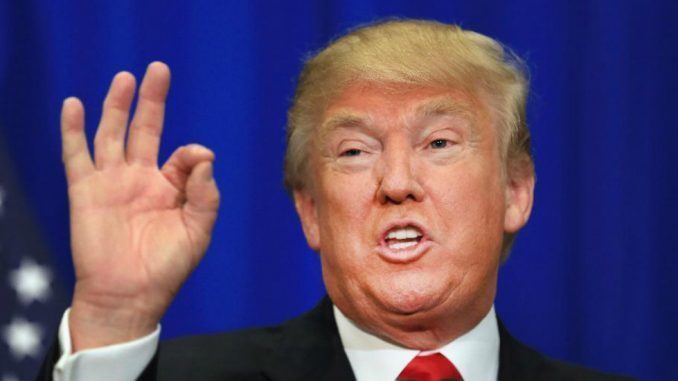
The Russian administration has criticized the US recent remarks towards Iran despite the close ties the two powers started to make recently after Trump’s election.
Trump and Vladimir Putin, his Russian counterpart, have made clear they want to try to mend U.S.-Russia ties, which have slid to a post-Cold War low in recent years. Iran
Trump has made it clear he has no desire to confront Russian interests in Syria and expressed respect for Putin during the campaign
In addition, Putin was one of the first foreign leaders to congratulate Trump on November 9, noting specifically that Russia and the US shared a special responsibility to “sustain global stability and security”. It played well into Trump’s statement from last summer: “Wouldn’t it be nice if we got together with Russia and knocked the hell out of ISIS?”
Trump has also said recently that he respects Putin despite the negative side of his politics, and that it is better to cooperate with Russia in fighting terrorism rather than being at odds with it.
However, the two powers don’t share the same view about Tehran. Russia sees in the Iranian regime a partner in about the Syrian issue while the US consider it as a threat and imposed new sanctions on it. These starkly different views could complicate any rapprochement between the two powers.
US statements war on Iran
Trump has said during his election campaign that the deal as “disastrous” and said it would be his “number one priority” to dismantle it.
These threats became clearer after Trump’s inauguration, as he signed an executive order temporarily barring thousands from seven countries in the Middle East and Africa, including Iran, from obtaining visas to travel to the United States.
After a failed ballistic missile test by Iran the US was enraged again. Trump announced that “we’re officially putting Iran on notice”, and declared new sanctions against Iran later.
In a move designed to punish Iran for testing its ballistic missile program, the US Treasury Department said it had published a list of 13 people and 12 entities facing new sanctions.
Trump told Fox News in an interview aired at the weekend that Iran had “total disregard” for the United States and labeled Tehran “the number one terrorist state”, complaining it was sending arms and weapons “all over the world”.
Two sources also stated that the Trump administration was now exploring how to renegotiate key terms of the 2015 accord between Tehran and six world powers, under which Iran agreed to curb its nuclear program.
Russian refusal
When asked about Trump’s description of Iran as a “terrorist state,” Kremlin spokesman Dmitry Peskov told reporters that Moscow saw things very differently.
“Russia has friendly partner-like relations with Iran, we cooperate on a wide range of issues, value our trade ties, and hope to develop them further,” said Peskov.
“It’s no secret for anyone that Moscow and Washington hold diametrically opposed views on many international issues,” he added, saying that should not hinder a rapprochement.
Russia’s ambassador to Iran, Levan Djagaryan, said Moscow was concerned about escalating rhetoric between the United States and Iran, while Sergei Ryabkov, Russia’s deputy foreign minister, said Washington’s decision to impose new sanctions on Iran was a source of regret.
Ryabkov, in a separate interview with the Moscow-based Security Index Journal published on Monday, also urged Washington not to try to reopen the Iran nuclear deal, saying to do so would risk inflaming the Middle East.
“Don’t try to fix what isn’t broken,” said Ryabkov. “It would be an undesirable and negative turn of events that would only serve to pour oil on the flames in the Middle East.”
In comments that further underlined how far apart Moscow and Washington are over this issue, Russian Foreign Minister Sergei Lavrov told reporters on Monday he thought Iran should be part of an international coalition to fight ISIS in Syria and Iraq.
In addition, both Moscow and Tehran refused Trump’s new plans about establishing safe zones for the Syrian refugees on northern Syria, saying that those will be a breach to the Syrian sovereignty and will make the situation there worse.
However, it is not hidden that Russia and Iran have their differences in dealing with the Syrian issue. Will the US use these differences as a start point to plant diversity between, or they will be able to mend them and work together to keep the US out of taking part in Syria’s future?
